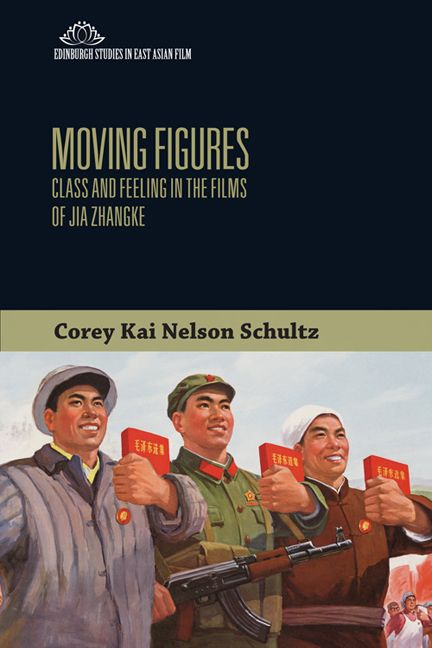Book contents
- Frontmatter
- Contents
- List of Figures
- Acknowledgments
- Introduction
- 1 The Worker Class: From Leader to the Margins
- 2 The Peasant and the Mingong: From Empathy to Sympathy to Looking Back
- 3 The Soldier: From Degraded Reproduction to Avenging Hero
- 4 The Intellectual: Power and the Voice
- 5 The Entrepreneur: From Crook to “New Reform Model”
- Notes
- Filmography
- Works Cited
- Index
4 - The Intellectual: Power and the Voice
Published online by Cambridge University Press: 10 May 2023
- Frontmatter
- Contents
- List of Figures
- Acknowledgments
- Introduction
- 1 The Worker Class: From Leader to the Margins
- 2 The Peasant and the Mingong: From Empathy to Sympathy to Looking Back
- 3 The Soldier: From Degraded Reproduction to Avenging Hero
- 4 The Intellectual: Power and the Voice
- 5 The Entrepreneur: From Crook to “New Reform Model”
- Notes
- Filmography
- Works Cited
- Index
Summary
Introduction
This chapter examines the figure of the intellectual (士), as represented by the artist Liu Xiaodong (the subject of Dong), the designer Ma Ke (the main focus of Useless), as well as the director Jia Zhangke, who is the artist/intellectual responsible for creating these films. I examine this humanitarian figure and the structures of feeling that are associated with it, which include patriotism, altruism, and the desire to “save” the nation and its people. In Jia's films, the intellectuals are distinguished by their agency and their “voice,” which is a continuation of the scholarly tradition of viewing themselves as the “voice of the people.” This is not only a declaration of agency that enforces their position, but also an act of agency, and is a cultural role that gives them a degree of power. Therefore, in this chapter, I pay particular attention to the voice; who commands it, what it says, how it is filmed, and what it does.
During their interviews, several similar feelings arise: a mission to serve society and speak for the masses; national patriotism; and nostalgia for the distant Chinese past. As controllers of the voice, they possess a superior position – literally and figuratively – as they appear to be both the subjects and the authorities of their respective documentaries, and are filmed as having authority through this voice. This is not only concretized via their interviews, but is also expressed in their numerous voice-overs as well as scenes that show them creating their respective art works. This activity emphasizes their status as the class of creators who design works that, in turn, also “speak.” Furthermore, both Liu and Ma are filmed with reoccurring artist tropes that further position them as members of the successful artist/intellectual class, and that emphasize the power and agency of the class. For example, Liu is recorded painting, conducting business, traveling, and other activities associated with the role of the artist, while Ma is interviewed in her pastoral atelier, and is filmed designing, touring her workshops, and exhibiting her show in Paris.
- Type
- Chapter
- Information
- Moving FiguresClass and Feeling in the Films of Jia Zhangke, pp. 109 - 135Publisher: Edinburgh University PressPrint publication year: 2018



